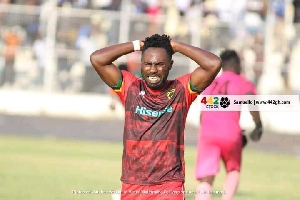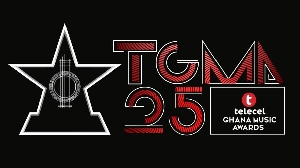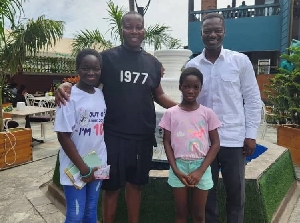Opinions of Thursday, 15 November 2007
Columnist: Kennedy, Arthur Kobina
Chieftaincy Reform
Last week, the Anlo Chieftaincy dispute erupted into violence and loss of lives. The crisis and resulting violence forcefully brought home to all the importance of Chieftaincy and its ability to affect the peace of our communities. Obviously, this was not the first time a Chieftaincy dispute has led to violence and loss of lives in Ghana. Sadly, it will probably not be the last time. From North to South --- from East to West, too many of our communities have chieftaincy disputes on the verge of erupting into violence that will destroy property and lead to injury and death. Dagbon, Wenchi, Ga Mashi, Anlo etc are just a few of the names that stand like silent sentinels in the night, reminding us of problems past and the gathering threats of violence yet to be in the future. These needless disputes that divert our attention and energies from fighting the hunger, disease and ignorance that are the real enemies of our people must stop.
In response to the Anlo violence, some have questioned the relevance of Chieftaincy to our development. We must recall the proud and visionary leadership of some chiefs in the struggle for independence and the pro-development role of some of our current chiefs when we judge the institution. While the institution has faults, it is vital to our national character. Therefore, those who think it must be banned as well as those who think it is sacred and perfect are both wrong. Let us work together to reform and strengthen chieftaincy, not ban it.
Indeed, the importance of chieftaincy is underlined by the fact that even when Ghanaians move away from their local areas and do not live under the domain of their chiefs, some go out of their way to create chiefs who are sometimes just as respected as hereditary chiefs. This occurs regularly amongst migrant Ghanaian communities in places as different as Kumasi and Toronto.
Unfortunately, some politicians are eagerly pointing fingers at one another in a misguided effort to wring from this tragedy as much political mileage as possible. The blood spilled at Anlo had not even dried when former Vice-President and NDC Presidential candidate Prof. Atta-Mills started pointing fingers at the NPP administration. The former Veep and legal luminary will serve the public interest if he waits for the results of the expected inquiry before assigning blame. While the NDC parliamentary caucus rightly called for an inquiry, they undermined their case by proceeding to do the work of the Commission of inquiry by proceeding to assign blame to all manner of people. Since he has been in government while there were chieftaincy disputes before, Prof Mills should demonstrate sensitivity to the complexities of these situations. Regrettably, some of the Anlo chiefs too have joined the blame game. While most people believe that mistakes were made, we must wait for the facts before assigning blame. To establish the facts of this particular dispute, we should have as soon as possible a credible and independent inquiry into the circumstances leading to the tragic events and the role of the relevant institutions and persons involved.
It was in response to the recognition of the role of chieftaincy and the concerns expressed by the Africa Peer Review Mechanism that the NPP government created the Ministry of Chieftaincy Affairs. While the Ministry has not yet had the desired impact due to inadequate resources, its creation was a step in the right direction.
Chieftaincy disputes have many bad effects on our country and communities; First, they lead to violence and loss of lives sometimes. Second, they cause division in our communities. Third, they retard development. Fourth, they tie up our over-burdened and under-staffed judicial system.
We should resist the temptation of returning to business as usual as soon as things are back to normal at Anlo. The lessons of this tragedy and those before it must compel us to tackle this problem in a serious and lasting way. If we ignore the sad history of these disputes, the blood of the next victims, whoever they may be, will truly be on our hands.
Here are some steps we must consider urgently.
First, our governments must not dabble in Chieftaincy disputes. Since independence, there has been the very strong perception that whatever governments of whatever day have created and/or exacerbated chieftaincy disputes. From Nkrumah’s regime to Kufuor’s government, no administration has escaped this charge. We must insist that our governments must stay out of chieftaincy just as we expect chiefs to stay out of partisan politics.
Second, we must document the “who and how” of succession for all paramountcies as soon as possible. When this is done, it must be the basis for resolving chieftaincy disputes.
Third, we must mandate the timely resolution of disputes. A time limit of one to two years should be considered.
Fourth, we must assure transparency and accountability in the acquisition and disposition of property by traditional authorities in a manner that assures the interests of the public and posterity. Currently, too many people believe, to the detriment of the institution that a lot of the main players in chieftaincy disputes are motivated more by greed than respect for our traditions.
Fifth, we must make a determined effort to involve our traditional rulers at all levels of our governance, as a complementary and integral part of our democratic dispensation. Sixth, we should resolutely enforce our laws, even during chieftaincy disputes. No one should escape punishment for acts which under any other circumstances, would be considered criminal, just because they were committed in the context of a Chieftaincy dispute.
Finally, let us stop the dangerous habit of politicizing everything. Chieftaincy disputes are not NPP problems. They are not NDC problems and they are not CPP problems. They are Ghanaian problems! Let us resolve them; together. Chieftaincy must be saved from the few bad chiefs, kingmakers and politicians bent on giving it a bad name. Our national interest requires us to restore it to its pristine condition.













